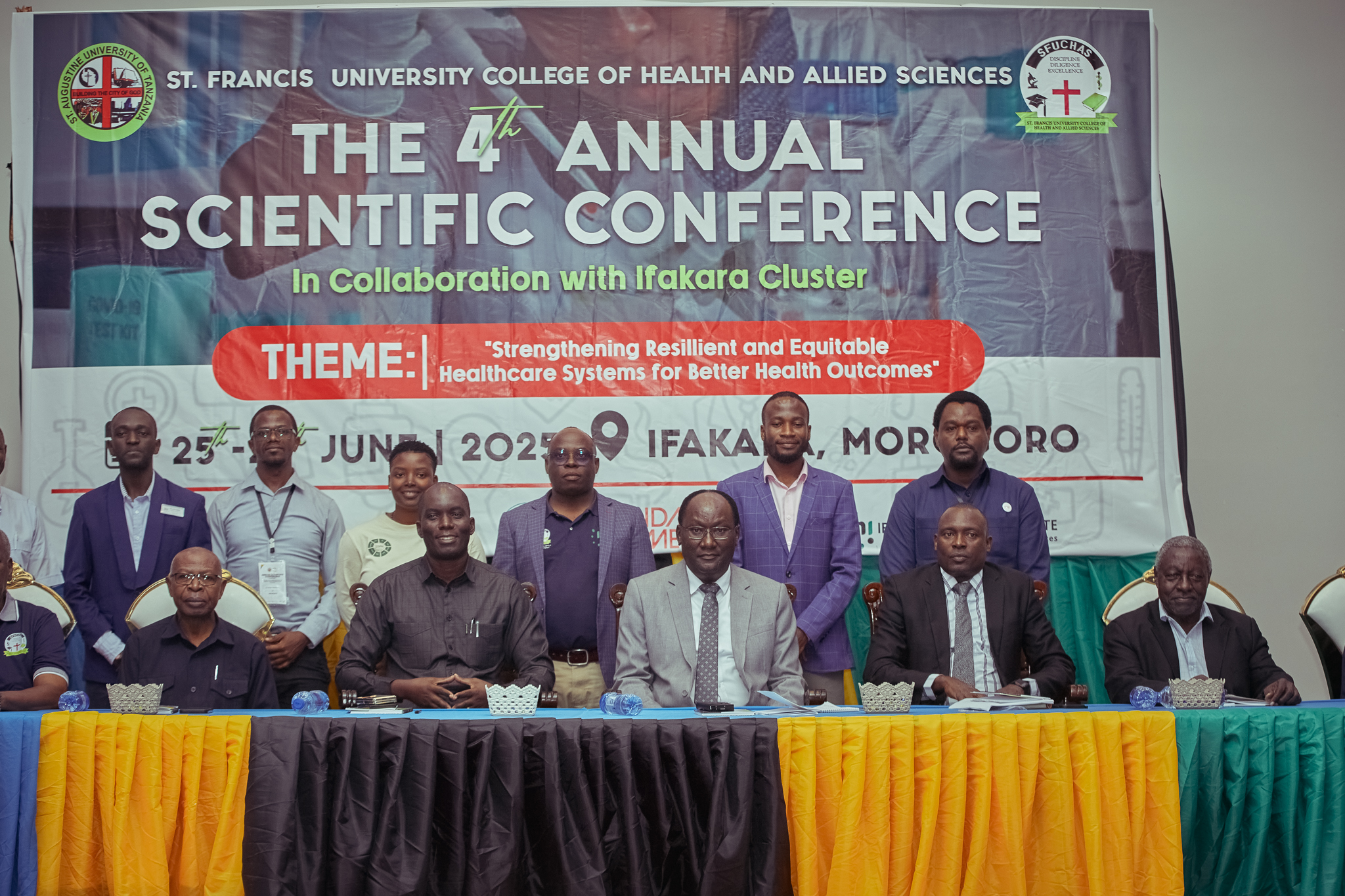
#ASCO2025: Ifakara, partners convene to champion scientific solutions for improved healthcare

Ifakara Health Institute, as part of the Ifakara Cluster, participated in the 4th Annual Scientific Conference hosted by St. Francis University College of Health and Allied Sciences (SFUCHAS). The two-day event, took place from June 25–26, 2025, bringing together scientists, healthcare professionals, and policy leaders from across Tanzania to explore solutions for health equity and sustainability.
Held under the theme “Strengthening Resilient and Equitable Healthcare Systems for Better Health Outcomes," the conference served as a platform for sharing scientific findings, innovations, policy insights and fostering meaningful dialogue aimed at improving healthcare delivery and access across the country.
Opening Ceremony: Calls for Action Rooted in Science
The conference was officially opened with remarks from Prof. Daniel Mushi, Deputy Secretary General for Science, Technology and Higher Education, who served as the Chief Guest. Prof. Kavana and Prof. Albino Kalolo from SFUCHAS welcomed participants, setting a collaborative tone for the sessions ahead. The opening was further enriched by a keynote address from Prof. Stephen Kibusi, Dean at the University of Dodoma, who emphasized the role of evidence-based research in advancing national health goals.
The speakers echoed a common message: that the path to equitable and sustainable health lies in translating science into policy and practice.
Spotlighting Innovation and Research
The conference featured over 30 presentations exploring a broad spectrum of topics aligned with the conference theme and sub-themes such as antimicrobial resistance, cervical cancer screening, epilepsy care, digital health technologies, and the role of climate change in disease transmission.
Additional presentations explored critical issues in human resources for health, adolescent reproductive care, and the use of artificial intelligence in scientific writing and diagnostics.
The conference also featured poster sessions, panel discussions, special forums focused on leadership, governance, health inequality, and institutional collaboration, a special session on the Ifakara Cluster's community impact, and exhibitions.
Ifakara Scientists Take Center Stage
Scientists from the Ifakara Health Institute played an active role at the 4th SFUCHAS Annual Scientific Conference, contributing to key discussions on strengthening health systems through innovative, evidence-based solutions. Their participation underscored the Institute’s ongoing commitment to advancing public health through rigorous scientific inquiry.
Among the notable presenters, Dorcas Mnzava shared findings on a more accessible way to screen for cervical pre-cancer and sexually transmitted infections (STIs) using self-testing and colposcopy—an approach designed to improve care for women in rural areas. Dorin Mmasi presented research on how malaria treatment, body rhythms, and lab conditions influence how infectious malaria parasites are to mosquitoes, offering insights critical to malaria control strategies.
Dr. Elibariki Simon Mafole, from the Heart and Lung Clinic, discussed the diagnosis and outcomes of critically ill patients admitted to a rural hospital’s high-dependency unit, highlighting gaps and opportunities in emergency care. George Sigalla showcased the One Stop Clinic model—a family-centered strategy aimed at preventing mother-to-child transmission of HIV and enhancing pediatric HIV treatment and support. Issa Mshani introduced a new method for detecting malaria using artificial intelligence and infrared light technology, offering a faster, more efficient way to identify infections.
Together, these contributions reflect the strength and diversity of Ifakara Health Institute’s research portfolio and its growing impact on healthcare innovation in Tanzania and beyond.
